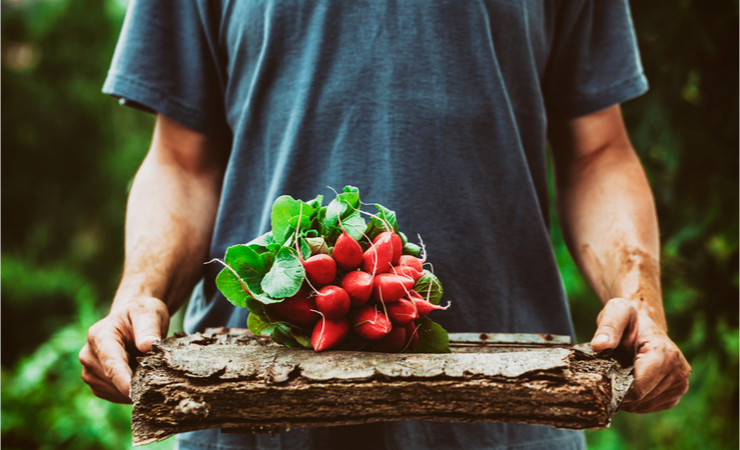QUESTION:
I’ve heard prostate cancer can be high or low risk. What foods or habits could reduce risk?
ANSWER:
Approximately 1/7 Canadian men are diagnosed with prostate cancer (PCa) in their lifetime. In low-risk PCa, treatment may not be needed right away or, in some cases, at all. If a man develops an intermediate or high-risk PCa, it could spread to other tissues, impact quality of life or become fatal. High-risk prostate cancer requires treatment and an oncologist may consider surgery, radiation or other therapies.
There are a number of PCa-related risk factors that are not modifiable like age, race, and family history. However, there are also evidence-supported diet and lifestyle factors that may impact risk. Dietarily there is some research to suggest potential risk reduction by limiting refined grains, sugars, processed meat, meat cooked at high temperatures, saturated animal fats, eggs, and dairy, while emphasizing a wide variety of plant-based foods and fish.
One study in men with PCa found a nearly 50 percent lower chance of “high-risk” PCa (vs low-risk) in those who ate cauliflower or broccoli at least once per week, compared to men who ate them less frequently. Other studies suggest dietary intake of curcumin, flaxseed, soy, pomegranate, tomatoes or green tea could also assist in reducing inflammation or cancer formation in the prostate.
In addition to a healthy diet, other actionable healthy living goals should include avoidance of cigarette smoke, maintaining a healthy body composition, regular and safe exercise, adequate vitamin D levels, managing stress and sleeping well. If you are overwhelmed with where to start, choose one goal and then build additional goals into your long-term routine as you feel comfortable. Talk with your medical care professional for guidance and before making any diet or life-style changes.
Dr. Jessica Moore is one of Canada’s only hospital and residency-trained naturopathic physicians. Her practiced is highly focused in integrative cancer care support. She is currently seeing patients out of two locations: Sage Clinic www.sageclinic.com and Tandem Clinic www.tandemclinic.com.
References:
- Prostate Cancer Statistics. Canadian Cancer Society.https://www.cancer.ca/en/cancer-information/cancer-type/prostate/statistics/?region=on. Accessed July 13, 2019
- Eric A Klein, MD Prostate cancer: Risk stratification and choice of initial treatment. UpToDate.
- Aune D et al Dairy products, calcium, and prostate cancer risk: a systematic review and meta-analysis of cohort studies. Am J Clin Nutr.2015 Jan;101(1):87-117.
- Michael Greger, MD. (2005) How Not To Die. New York, NY. Flat Iron Books.
- Marie-Hélène Teiten et al. Chemopreventive potential of curcumin in prostate cancer Genes Nutr. 2010 Mar; 5(1): 61–74.
- Pantuck AJ, Zomorodian N, Rettig M, et al. Long-term Follow-Up of Phase 2 Study of Pomegranate Juice for Men with Prostate Cancer Shows Durable Prolongation of PSA Doubling Time.Journal of Urology 2009;181(4 Suppl): abstract 826
- Mohseni R Association between Dietary Inflammatory Index and the Risk of Prostate Cancer: A Meta-Analysis. Nutr Cancer.2019;71(3):359-366.
- Kirsh VA Prospective study of fruit and vegetable intake and risk of prostate cancer. J Natl Cancer Inst.2007 Aug 1;99(15):1200-9. Epub 2007 Jul 24.

